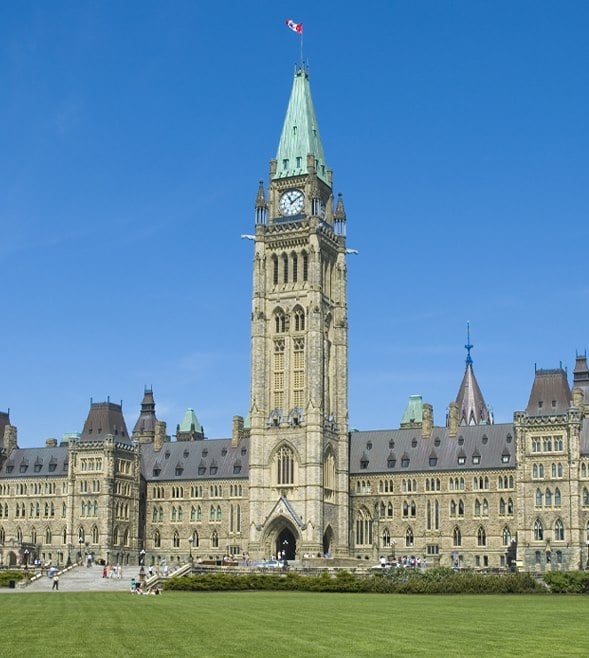-
Financial reporting and accounting advisory services
You trust your external auditor to deliver not only a high-quality, independent audit of your financial statements but to provide a range of support, including assessing material risks, evaluating internal controls and raising awareness around new and amended accounting standards.
-
Accounting Standards for Private Enterprises
Get the clear financial picture you need with the accounting standards team at Doane Grant Thornton LLP. Our experts have extensive experience with private enterprises of all sizes in all industries, an in-depth knowledge of today’s accounting standards, and are directly involved in the standard-setting process.
-
International Financial Reporting Standards
Whether you are already using IFRS or considering a transition to this global framework, Doane Grant Thornton LLP’s accounting standards team is here to help.
-
Accounting Standards for Not-for-Profit Organizations
From small, community organizations to large, national charities, you can count on Doane Grant Thornton LLP’s accounting standards team for in-depth knowledge and trusted advice.
-
Public Sector Accounting Standards
Working for a public-sector organization comes with a unique set of requirements for accounting and financial reporting. Doane Grant Thornton LLP’s accounting standards team has the practical, public-sector experience and in-depth knowledge you need.
-
Tax planning and compliance
Whether you are a private or public organization, your goal is to manage the critical aspects of tax compliance, and achieve the most effective results. At Doane Grant Thornton, we focus on delivering relevant advice, and providing an integrated planning approach to help you fulfill compliance obligations.
-
Research and development and government incentives
Are you developing innovative processes or products, undertaking experimentation or solving technological problems? If so, you may qualify to claim SR&ED tax credits. This Canadian federal government initiative is designed to encourage and support innovation in Canada. Our R&D professionals are a highly-trained, diverse team of practitioners that are engineers, scientists and specialized accountants.
-
Indirect tax
Keeping track of changes and developments in GST/HST, Quebec sales tax and other provincial sales taxes across Canada, can be a full-time job. The consequences for failing to adequately manage your organization’s sales tax obligations can be significant - from assessments, to forgone recoveries and cash flow implications, to customer or reputational risk.
-
US corporate tax
The United States has a very complex and regulated tax environment, that may undergo significant changes. Cross-border tax issues could become even more challenging for Canadian businesses looking for growth and prosperity in the biggest economy in the world.
-
Cross-border personal tax
In an increasingly flexible world, moving across the border may be more viable for Canadians and Americans; however, relocating may also have complex tax implications.
-
International tax
While there is great opportunity for businesses looking to expand globally, organizations are under increasing tax scrutiny. Regardless of your company’s size and level of international involvement—whether you’re working abroad, investing, buying and selling, borrowing or manufacturing—doing business beyond Canada’s borders comes with its fair share of tax risks.
-
Transfer pricing
Transfer pricing is a complex area of corporate taxation that is concerned with the intra-group pricing of goods, services, intangibles, and financial instruments. Transfer pricing has become a critical governance issue for companies, tax authorities and policy makers, and represents a principal risk area for multinationals.
-
Succession & estate planning
Like many private business owners today, you’ve spent your career building and running your business successfully. Now you’re faced with deciding on a successor—a successor who may or may not want your direct involvement and share your vision.
-
Tax Reporting & Advisory
The financial and tax reporting obligations of public markets and global tax authorities take significant resources and investment to manage. This requires calculating global tax provision estimates under US GAAP, IFRS, and other frameworks, and reconciling this reporting with tax compliance obligations.

-
Transactions
Our transactions group takes a client-centric, integrated approach, focused on helping you make and implement the best financial strategies. We offer meaningful, actionable and holistic advice to allow you to create value, manage risks and seize opportunities. It’s what we do best: help great organizations like yours grow and thrive.
-
Restructuring
We bring a wide range of services to both individuals and businesses – including shareholders, executives, directors, lenders, creditors and other advisors who are dealing with a corporation experiencing financial challenges.
-
Forensics
Market-driven expertise in investigation, dispute resolution and digital forensics
-
Cybersecurity
Viruses. Phishing. Malware infections. Malpractice by employees. Espionage. Data ransom and theft. Fraud. Cybercrime is now a leading risk to all businesses.
-
Consulting
Running a business is challenging and you need advice you can rely on at anytime you need it. Our team dives deep into your issues, looking holistically at your organization to understand your people, processes, and systems needs at the root of your pain points. The intersection of these three things is critical to develop the solutions you need today.
-
Creditor updates
Updates for creditors, limited partners, investors and shareholders.

-
Governance, risk and compliance
Effective, risk management—including governance and regulatory compliance—can lead to tangible, long-term business improvements. And be a source of significant competitive advantage.
-
Internal audit
Organizations thrive when they are constantly innovating, improving or creating new services and products and envisioning new markets and growth opportunities.
-
Certification – SOX
The corporate governance landscape is challenging at the best of times for public companies and their subsidiaries in Canada, the United States and around the world.
-
Third party assurance
Naturally, clients and stakeholders want reassurance that there are appropriate controls and safeguards over the data and processes being used to service their business. It’s critical.
-
 Assurance Important changes coming to AgriInvest in 2025AgriInvest is a business risk management program that helps agricultural producers manage small income declines and improve market income.
Assurance Important changes coming to AgriInvest in 2025AgriInvest is a business risk management program that helps agricultural producers manage small income declines and improve market income. -
 ASPE Sec. 3041 Agriculture Understanding and applying the new ASPE Section 3041 AgricultureThe Canadian Accounting Standards Board (AcSB) has released new guidance on recognizing, measuring and disclosing biological assets and the harvested products of bio assets.
ASPE Sec. 3041 Agriculture Understanding and applying the new ASPE Section 3041 AgricultureThe Canadian Accounting Standards Board (AcSB) has released new guidance on recognizing, measuring and disclosing biological assets and the harvested products of bio assets. -
 Tax alert Agricultural Clean Technology ProgramThe Agricultural Clean Technology Program will provide financial assistance to farmers and agri-businesses to help them reduce greenhouse gas (GHG) emissions.
Tax alert Agricultural Clean Technology ProgramThe Agricultural Clean Technology Program will provide financial assistance to farmers and agri-businesses to help them reduce greenhouse gas (GHG) emissions. -
 Tax alert ACT Program – Research and Innovation Stream explainedThe ACT Research and Innovation Stream provides financial support to organizations engaged in pre-market innovation.
Tax alert ACT Program – Research and Innovation Stream explainedThe ACT Research and Innovation Stream provides financial support to organizations engaged in pre-market innovation.
-
Builders And Developers
Every real estate project starts with a vision. We help builders and developers solidify that vision, transform it into reality, and create value.
-
Rental Property Owners And Occupiers
In today’s economic climate, it’s more important than ever to have a strong advisory partner on your side.
-
Real Estate Service Providers
Your company plays a key role in the success of landlords, investors and owners, but who is doing the same for you?

-
Mining
There’s no business quite like mining. It’s volatile, risky and complex – but the potential pay-off is huge. You’re not afraid of a challenge: the key is finding the right balance between risk and reward. Whether you’re a junior prospector, a senior producer, or somewhere in between, we’ll work with you to explore, discover and extract value at every stage of the mining process.
-
Oil & gas
The oil and gas industry is facing many complex challenges, beyond the price of oil. These include environmental issues, access to markets, growing competition from alternative energy sources and international markets, and a rapidly changing regulatory landscape, to name but a few.

Finance Minister Peter Bethlenfalvy delivered the 2024 Ontario Fall Economic Statement (ON FES 2024) on October 30, 2024. The 2024 Ontario Economic Outlook and Fiscal Review: Building Ontario For You serves as a precursor to Ontario’s 2025 budget. ON FES 2024 introduces some notable personal tax measures but doesn’t include significant changes to business tax measures.
The ON FES 2024 estimates a $6.6 billion deficit for the 2024-25 fiscal year, an improvement of $3.2 billion from the $9.8 billion deficit projected in the 2024 budget.
Ontario attributes the smaller deficit to higher-than-expected tax revenues, which includes those resulting from the federal government’s proposed increase to the capital gains inclusion rate and lower-than-expected interest costs. These savings are net of additional spending on items like the proposed taxpayer rebates, increased health sector supports, and an increase to Ontario’s contingency fund.
Estimated surplus (deficits)
Personal tax measures
New taxpayer rebates
Ontario proposes to introduce a refundable personal income tax credit that offers eligible tax filers a one-time $200 rebate. To qualify, the individual must meet all the following criteria:
- Be 18 years or older at the end of 2023
- Reside in Ontario on December 31, 2023
- File their 2023 income tax and benefit returns by December 31, 2024
- Not be bankrupt or have been incarcerated in 2024
For Ontario families that receive the 2024 Canada Child Benefit, another one-time $200 rebate is proposed for each child under the age of 18. The rebate would be provided to the Ontario resident who receives the benefit in respect of the child. For Ontario families with children who don’t receive the 2024 Canada Child Benefit, an alternative process will be available to claim the rebate.
AMT update
Ontario proposes to lower its alternative minimum tax (AMT) rate to 24.63% (from 33.67%) starting with the 2024 tax year. In addition, Ontario will adjust its AMT credit rate to 24.63% to mirror the proposed rate, starting with the 2025 tax year. This change is to ensure that Ontario’s effective AMT rate remains unchanged at 5.05%, in response to the federal government’s recent changes to increase the federal AMT rate, starting in the 2024 tax year.
New tax credit for fertility treatment
Ontario proposes a new tax credit of up to 25% of eligible fertility treatment expenses for Ontario residents, effective January 2025. Eligible expenses include in vitro fertilization cycles, fertility drugs, travel, and diagnostic testing. Ontario intends to invest an additional $150 million over two years to expand the Ontario Fertility Program.
Sales and excise tax measures
Gas tax
Ontario extends cuts to the gas tax, including diesel, to June 30, 2025 (previously set to expire on December 31, 2024). The relief includes a continued reduction of 5.7 cents/litre for gas and 5.3 cents/litre for diesel. These reductions hold the provincial gas and diesel tax component of fuel prices to 9 cents/litre.
Other notable measures
Hydroelectric energy
Ontario is investing more than $2.6 billion to expand and refurbish 12 clean electricity generating stations. The investment is intended to secure 4,362 MW of hydro electricity generation which will power 4.3 million homes.
Previously announced measures
GAAR
Ontario will mirror the federal government’s changes related to the general anti-avoidance rule (GAAR), effective January 1, 2024.
Mandatory disclosure rules
Ontario proposes to include the disclosure of “notifiable transactions” and “uncertain tax treatments” effective from June 2023. This would mirror the expanded federal mandatory disclosure rules.
Beer tax freeze
Ontario proposes to pause the estimated 4.6% increase to the beer basic tax scheduled for March 1, 2024. This freeze will be in place for two years, until March 1, 2026.
Takeaway
Have questions? Let’s talk. Contact your local advisor or reach out to us here.
Disclaimer
The information contained herein is general in nature and is based on proposals that are subject to change. It is not, and should not be construed as, accounting, legal, or tax advice or an opinion provided by Doane Grant Thornton LLP to the reader. This material may not be applicable to, or suitable for, specific circumstances or needs and may require consideration of other factors not described herein.

